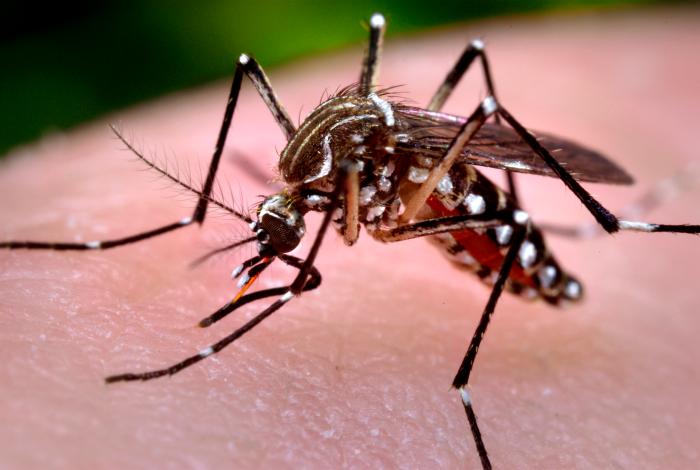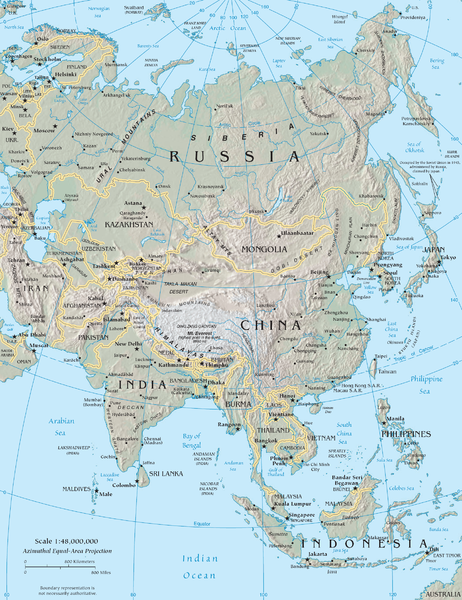Dengue is a mosquito-borne viral disease that has rapidly spread in all regions of the globe. The actual numbers of dengue cases are underreported and many cases are misclassified. One recent estimate indicates 390 million dengue infections per year (95% credible interval 284–528 million), of which 96 million (67–136 million) manifest clinically (with any severity of disease).
Cases across the Americas, South-East Asia and Western Pacific exceeded 1.2 million in 2008 and over 3 million in 2013 (based on official data submitted by Member States).
So how are the Asian countries doing with dengue fever during the first half of 2015?

The Philippines
From 1 January to 30 May 2015, there were 28,600 cases of dengue, including 86 deaths, reported on the archipelago. This is 6.33% higher compared with the same reporting period in 2014 (26,897).
In all of 2014, the Philippines reported 113,485 cases. This was a 45% decrease from 2013 when more than 200,000 dengue cases were seen.
With the onset of the rainy season, Philippine health officials are reminding the public anew on Dengue awareness and advising people to do regular clean-up drive for possible mosquito breeding sites.
Malaysia
The number of dengue fever cases in Malaysia have surpassed 58,000 during the first six months of the year. This includes 162 fatalities as of June 27. Selangor state has seen more than 33,000 cases alone.
Recent reports in Malaysia show that the Malaysian Armed Forces (MAF) will be teaming up with Pharmaniaga and Bavarian Nordic will carry out dengue vaccine research and development in order to curb the dengue threat in the country.
Chief of Armed Forces Gen Tan Sri Zulkifeli Mohd Zin said this collaboration is an important milestone for the MAF because it is the first time ever they are collaborating with various agencies with a reputable partner from overseas.
“Apart from Pharmaniaga and Bavarian Nordic, this collaboration that is represented by Malaysian Armed Forces Health Services will also see the involvement of the Ministry of Health, Universiti Pertahanan Nasional Malaysia (UPNM) and Universiti Teknologi MARA (UiTM).
“By doing this, we hope to be the first country to be able to produce this vaccine and hope it can be expanded further,” he said in a press conference after witnessing the signing of the contract, here today.

Thailand
From 1 January 2015 – 29 June 2015 , a total of 14591 cases were reported from 77 provinces (morbidity rate was 22.40 / 100,000 population). There was 1 death.
Thai health authorities say the cities/towns with the highest morbidity include Rayong (110.47 / 100,000 population.) Trad (103.68 / 100,000 population.) Angthong (96.98 / 100,000 population.) Samutsongkram (87.54 / 100,000 population.) and Petchburi (81.61 / 100,000 population.)
The numbers in Thailand are significantly lower than in 2013 when more than 140,000 cases were reported.
Vietnam
As of 7 June 2015, there were 13,049 cases of dengue including 12 deaths reported in Vietnam. Compared to same reporting period in 2014, number of cases increased by 22.8% and number of deaths increased by 5 cases.
Singapore
As of July 3, Singapore has reported 4,292 dengue fever cases. This number is down some 45% from the same period in 2014. Despite the improved numbers this year, health officials urge the public to stay vigilant as increases in the Aedes mosquito population are being seen and an increase in transmission of the virus serotype DENV-2. Against a backdrop of a warmer season and low herd immunity, dengue cases may rise in the next few months.
Since March 2013, the DEN-1 virus strain was predominant in Singapore. The proportion of DENV-2 cases has risen from 18.3 per cent in 2014 to approximately 44 per cent in mid-May 2015. Historically, a change in the predominant dengue serotype has been followed by a spike in dengue cases. The last serotype switch, from DENV-2 to DENV-1, took place in March 2013 accompanied by a sharp dengue outbreak that year.
In 2013, Singapore reported a record number of cases with over 22,000, breaking the previous record set in 2005.
Dengue virus is transmitted by female mosquitoes mainly of the species Aedes aegypti and, to a lesser extent, A. albopictus.
The World Health Organization says there are 4 distinct, but closely related, serotypes of the virus that cause dengue (DEN-1, DEN-2, DEN-3 and DEN-4). Recovery from infection by one provides lifelong immunity against that particular serotype. However, cross-immunity to the other serotypes after recovery is only partial and temporary. Subsequent infections by other serotypes increase the risk of developing severe dengue.


3 thoughts on “Asia dengue fever update: Philippines, Malaysia, Thailand, Vietnam and Singapore”